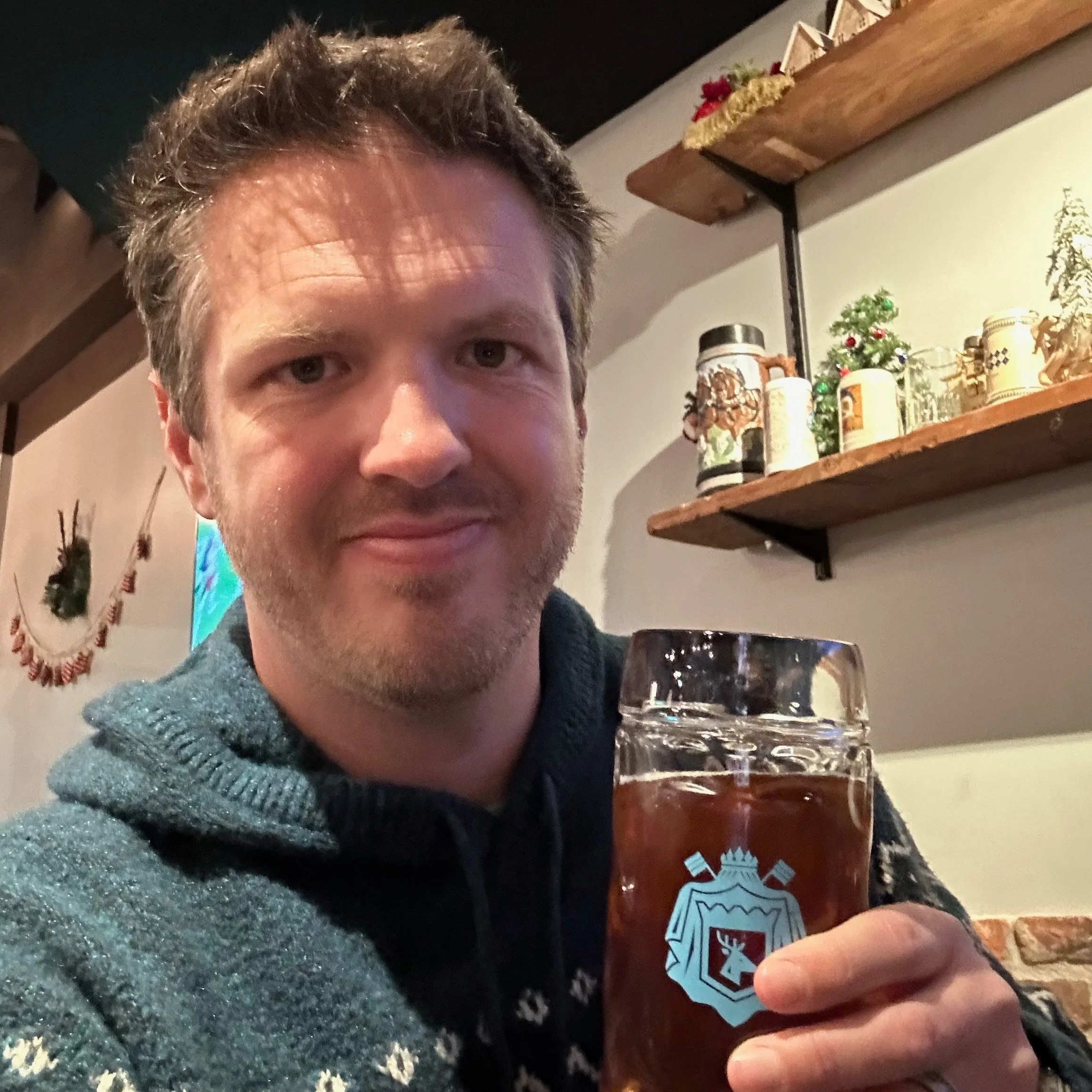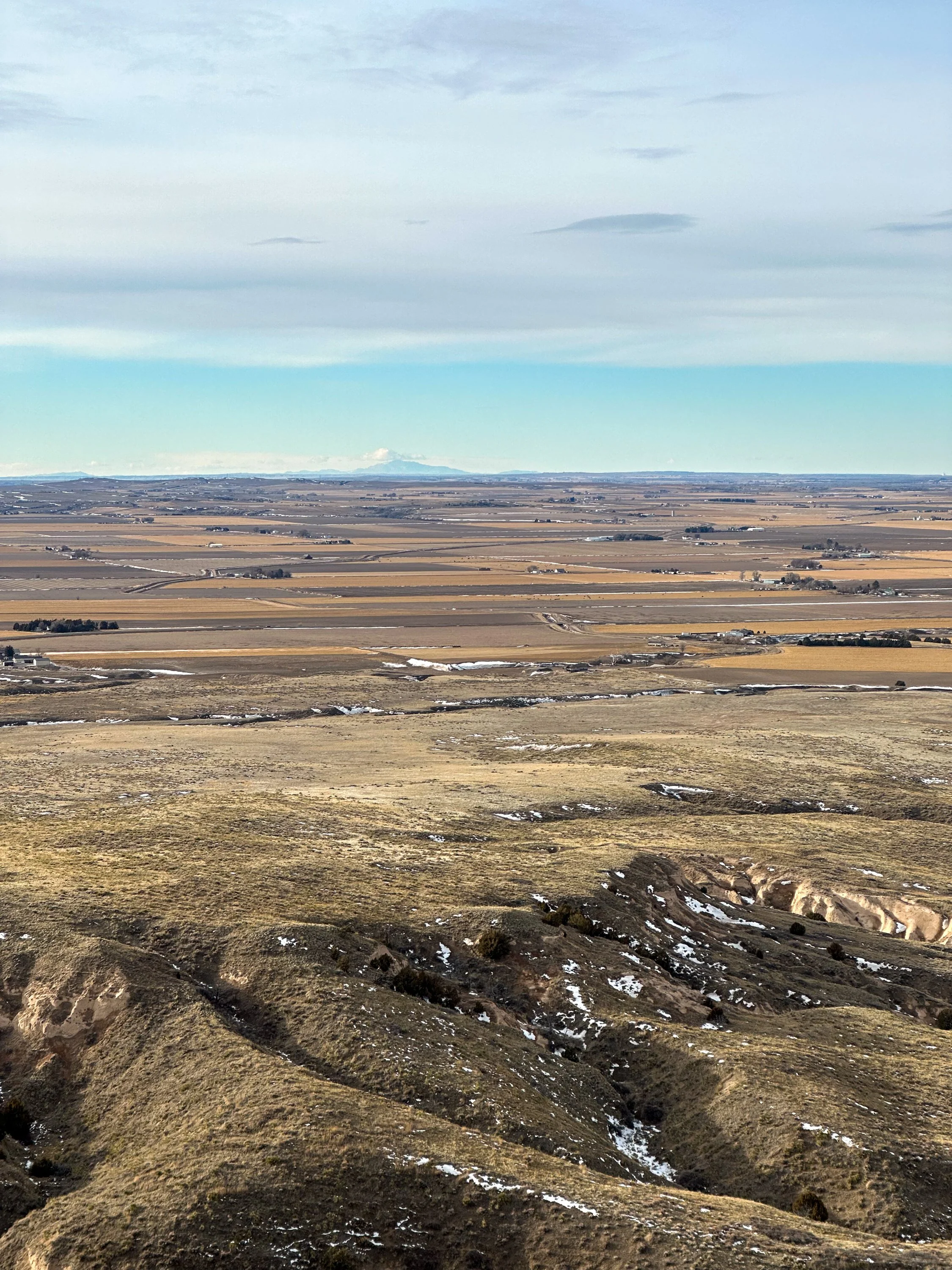Western Nebraska Photo Trip
Here’s my celebratory beer with bronchitis after my senior seminar presentation.
Jan 1, 2023
First, the elephant. I missed 3 weeks of posting. I got a rough edit of my senior seminar project done and presented it, then promptly died. I’ve been sick since the week before Christmas. The little time I was feeling good was when I went on this trip to Western Nebraska. Otherwise, I’ve felt terrible with bronchitis and then possibly pneumonia. I just didn’t have the energy to post, let alone do much of anything.
Chimney Rock in the Snow
On Thursday, Dec. 29, I had to feed my wanderlust and take a photography trip. I decided to go to Chimney Rock and Scotts Bluff in western Nebraska. Much to my surprise, I had to drive through a blizzard to get there. It made driving a bit slower, but it made for nice photos of what would have otherwise been boring dead winter scenes.
Chimney Rock Cemetary
I spent a lot of time at Chimney Rock playing around with taking High Resolution images. My Fuji H2 Camera has something called Pixel Shift Multi Shot. It works by physically moving the camera sensor 20 times to take a 160megapixel photo. You then use special software called Pixel Shift Combiner on your computer to combine and generate the 160 megapixel image from the twenty 40 megapixel photos.
To do this, the camera must remain completely still because unlike other techniques where you create a large image through oversampling (see the video below) Pixel Shift is actually creating a real 160 megapixel photo. Each pixel is capturing a different part of the image. My brain understands that, but I still keep wanting to treat it like oversampling. Besides creating high resolution images of still life, it is good for document and art archiving.
Creating a super sized image by pixel stacking
As such, I used a 150 mm lens on the formation, with the tripod perched in the bed of my truck, in 25 mph wind gusts. That’s the complete opposite of keeping the camera still. You can’t rely on image stabilization either because the camera uses that function to move the sensor around to take the 20 images.
In this image created with the Pixel Shift software, you can actually see the individual pixel colors around the edge of the rock where the image didn’t line up like it was supposed to due to movement of the whole camera.
Because I (rightly so) didn’t trust that the pixel shifting would work, I created a high resolution the old-fashioned way. I took a panorama of 18 images zoomed in tight with a 1200 mm lens, then stitched them together to form the 220-megapixel image to the right. Click or Tap on it and zoom in.
It’s huge!
Images stitched together to make up the panorama
Next I drove 22 miles northwest to Scotts Bluff. I’d never visited the actual monument itself and after being sick, I was in the mood to do a little light hiking. Well, I got more than I bargained for. The road to the top was closed from snow, but the Park Ranger said I was welcome to walk the 1.5 miles to the top. I’m 75% sure this hike in the cold wind lead to the severe relapse I had with my illness 2 days later.
This was pretty uneventful. The album I created could be titled “A Study in Brown”. The ranger said there might be a bighorn sheep or some mule deer, but I didn’t see anything.
The Fareful Selfie
Of course, I had to take a selfie. It was really windy, so I had my tripod legs extra wide, but I couldn’t quite get the wall behind me in view at that lowered height so I raised them up to the normal angle for this shot.
Immediately after this picture was taken, my camera blew over and fell 8 feet off a little ledge. I think it would have been fine, but unfortunately, I had the flip screen out, and it landed right on the lens and screen. The hinge broke, and neither the screen nor the electronic viewfinder worked anymore. UGH
I do pay for insurance for all of my camera gear, but I’ve just been informed it will take 5-6 weeks because the normal repair shop couldn’t fix it, and they had to send it to Fuji itself. (Pretty typical since Fuji isn’t one of the big 3 manufacturers)










